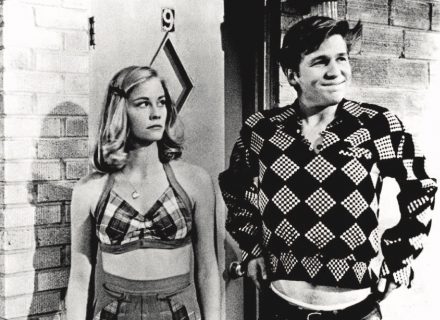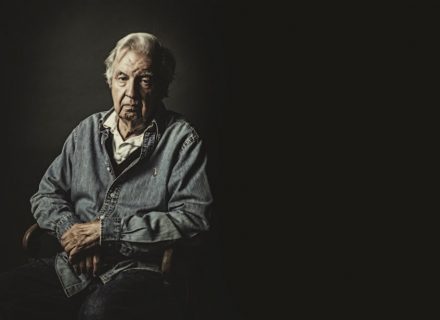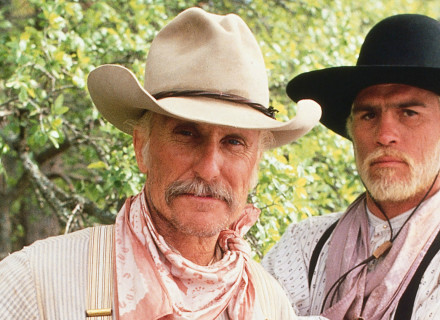The Pulitzer Prize-winning “Lonesome Dove” author received the 2015 Lifetime Achievement Award of the Houston Film Critics Society.
Note: In 2015, it was my privilege as a founding member of the Houston Film Critics Society to introduce the Lifetime Achievement honor for Larry McMurtry — who passed away Thursday at age 84 — at the HFCS Awards Show. This is the text of my presentation.
Some years ago, Larry McMurtry told me he was more than a little surprised by the passionate response to Lonesome Dove — both his Pulitzer Prize-winning novel, and the epic miniseries adaptation starring Robert Duvall and Tommy Lee Jones.
And when I said, only half-jokingly, that both the novel and the miniseries were widely credited with reviving the classic myth of the American West — he said that is what really knocked him for a loop.
To quote McMurtry: “I always thought of Lonesome Dove as anti-mythic. That’s not the way it was received, of course. Authors very rarely have any control over how their books are read or perceived. But I always thought of it as critical rather than celebratory.”
Of course, millions of readers and viewers — including, I daresay, quite a few proud Texans, and a couple of gentlemen named Duvall and Jones — would passionately disagree. For them, the Lonesome Dove mythos — a mythos McMurtry has been quite happy to sustain and expand in subsequent novels and miniseries — is our all-American version of The Odyssey or The Illiad. Or at least the equal to sagas spun by Shakespeare and other immortal authors.
Robert Duvall once told me that he was given a copy of Lonesome Dove by his ex-wife, who insisted that he read because, in her words, “It’s maybe better than Dostoyevsky.” Duvall wound up agreeing with her — although he dropped the “maybe” from his own appraisal.
Is Larry McMurtry truly the Dostoyevsky of Texas? The Homer of the Plains? The Shakespeare of the Lone Star State? Well, in my considered opinion… maybe.
Certainly, his novels — and the better films and miniseries adapted from those novels — have offered a richly detailed and marvelously multifaceted view of both Texas and Texans — and, by extension, of an American West that is both a geographical location and a state of mind.
Thanks to him, we have Hud, the enduringly powerful 1963 film based on McMurtry’s novel Horseman, Pass By, starring Paul Newman in one of his signature roles as a charismatically hunky and brazenly amoral Texas Panhandle cattle rancher.
Thanks to McMurtry, we have The Last Picture Show, the hauntingly raw and elegiac 1971 drama about small-town Texas life in the 1950s, which McMurtry and director Peter Bogdanovich adapted from his 1966 novel.
Thanks to McMurtry — and his writing partner, Diana Ossana — we have Brokeback Mountain. They adapted their screenplay from a short story by Annie Proulx — and wound up winning an Oscar for their work — but not before they spent seven years searching for filmmakers and film actors who had the courage, and the compassion, to bring this deeply moving love story to the screen.
And yes, thanks to Larry McMurtry, we have Aurora Greenway — the self-dramatizing Grande dame of River Oaks — who was played to Oscar-worthy perfection by Shirley MacLaine in the Oscar-winning, filmed-in-Houston movie version of Terms of Endearment. And who returned to raise a bit more hell before fading away in The Evening Star.
Larry McMurtry has spent most of his life creating — and criticizing and celebrating — so many full-bodied and unforgettable characters like Aurora. Which is why we are proud to celebrate him with our Houston Film Critics Society Lifetime Achievement Award.

















